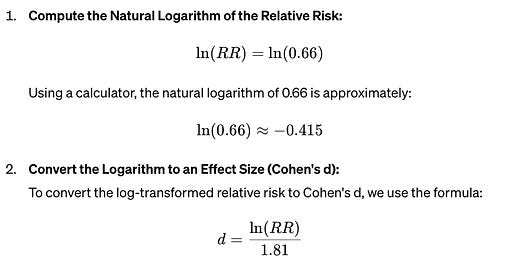The trend towards using a medical model for legalization of formally illegal substances has been undeniably successful. Cannabis was just rescheduled as a schedule III compound, which means it has legitimate medical use according to the DEA. One of the ways in which cannabis has been promoted, is as a treatment for post-traumatic stress disorder (PTSD). This seems strange to me, as a psychiatrist, because the data I had seen was unconvincing. I've seen a lot of people smoke it, and… It didn't seem like it was doing much that was useful. The plural of anecdote? It is not evidence. So, in today's column, I'm going to review the data on the role of cannabis in PTSD.
The cannabis plant has myriad different compounds. Generally, the psychoactive compounds are considered to be primarily THC and to a much lesser extent, CBD:
It contains cannabinoids and several other classes of chemical compounds acting on the cannabinoid receptors. Specifically, Δ-9-tetrahydrocannabinol (THC) is a highly lipophilic alkaloid and is the primary psychoactive ingredient in marijuana, varying from 0.2% to 30% potency per plant and strain; whilst cannabidiol (CBD) is a non-psychotomimetic cannabinoid, with neuroprotective, analgesic, sedative antiemetic, antispasmodic, anti-inflammatory, and anxiolytic properties.1
When's the last time you saw the word “whilst?” I knew there was a reason to write this newsletter on Substack—it’s a place for writers! Ugh. Ok, whilst I got distracted by that less-than-usual word choice, we will pull our act together and move forward with the evidence-assessing process.
It turns out that most pharmacologic treatments for PTSD also are modestly helpful at best, according to the highest level evidence reviews we have, done by our friends at the Cochrane group:
We include 66 RCTs in the review (range: 13 days to 28 weeks; 7442 participants; age range 18 to 85 years) and 54 in the meta-analysis.
It’s a very large sample!
For the primary outcome of treatment response, we found evidence of beneficial effect for selective serotonin reuptake inhibitors (SSRIs) compared with placebo (risk ratio (RR) 0.66, 95% confidence interval (CI) 0.59 to 0.74; 8 studies, 1078 participants), which improved PTSD symptoms in 58% of SSRI participants compared with 35% of placebo participants, based on moderate-certainty evidence.
Now, unfortunately, because the Cochrane review uses a relative risk and not effect size, we have to do some math to compare to anything else I discuss in this newsletter, so I hope you'll bear with me as I walk you through that process.
First, we need to convert the relative risk to an effect size (Cohen's d):
So, a relative risk of 0.66 corresponds to an effect size (Cohen's d) of approximately -0.229. This indicates a small to medium effect, where the negative sign shows that the outcome (PTSD symptoms) are less likely in the treatment group compared to the control group. This is to say, SSRIs are modestly helpful. However, using the Muir-Skee Lo Emotionally Corrective Equation to convert that effect size to height, we multiply the effect size (in units of standard deviations) by size of the standard deviation in the height of the average American male human (2.5”), and get the following…
“If SSRI were a drug for increased height, how much height would they add (in individuals for this indication)?”
SSRIs' benefit equals only an extra 0.5725” taller. Which is not…baller.
It's also worth noting that cannabis had a withdrawal phenomenon as an Adverse Effect in individuals treated for PTSD:
For the outcome of treatment withdrawal, we found evidence of a harm for the individual SSRI agents compared with placebo (RR 1.41, 95% CI 1.07 to 1.87; 14 studies, 2399 participants). Withdrawals were also higher for the separate SSRI paroxetine group compared to the placebo group (RR 1.55, 95% CI 1.05 to 2.29; 5 studies, 1101 participants).
Using the same math above, it's a relatively small effect size for harm in this cohort, 0.190. This would shave 0.45 inches from height, using the M-SLo EQE. It's just about as likely to hurt you in withdrawal as it is to help you in reducing your symptoms. For those who remember my myriad reviews of antipsychotic medications, it's worth noting that none of them panned out as helpful in PTSD:
There was however no evidence of beneficial effect for the number of participants who improved with the antipsychotics (RR 0.51, 95% CI 0.16 to 1.67; 2 studies, 43 participants) compared to placebo, based on very low-certainty evidence.
Now that we have a baseline, we can move on to taking a look at the evidence for cannabis.




